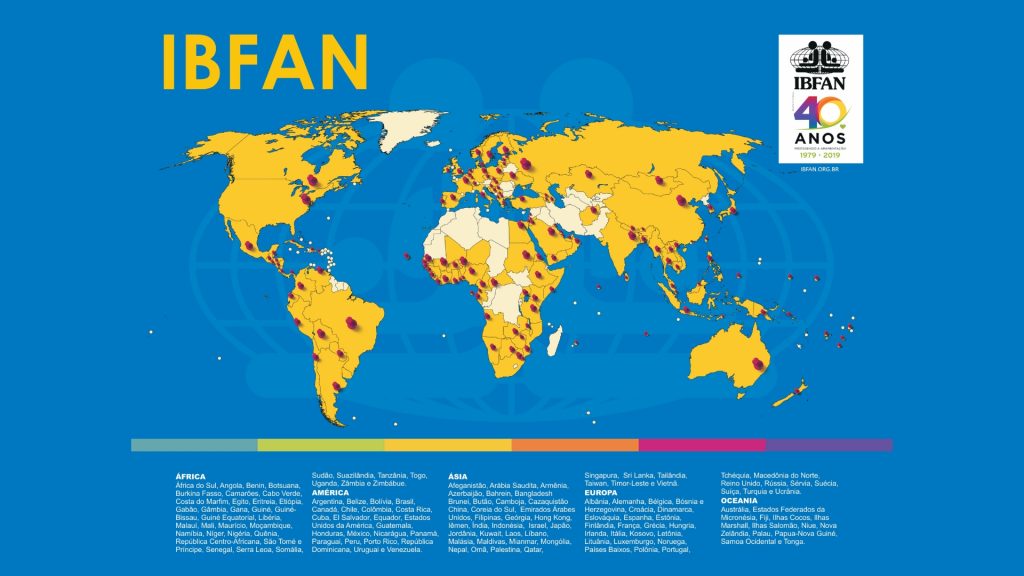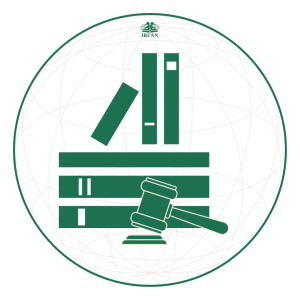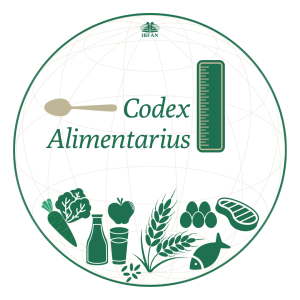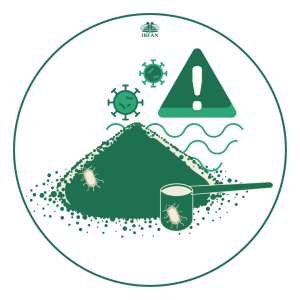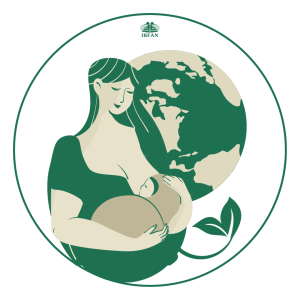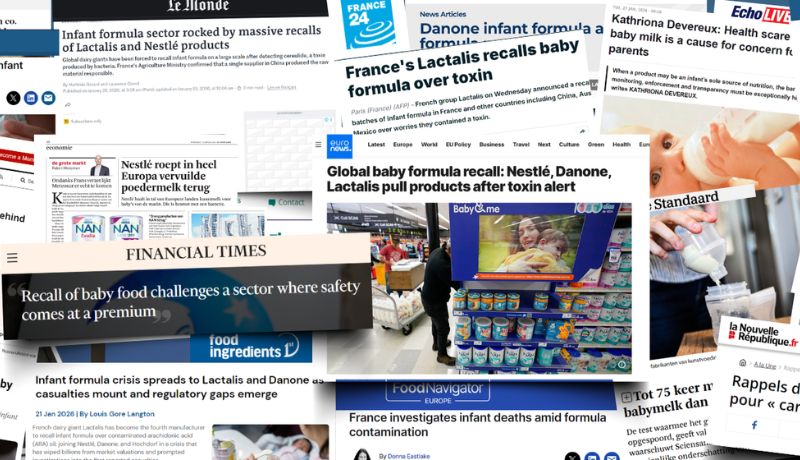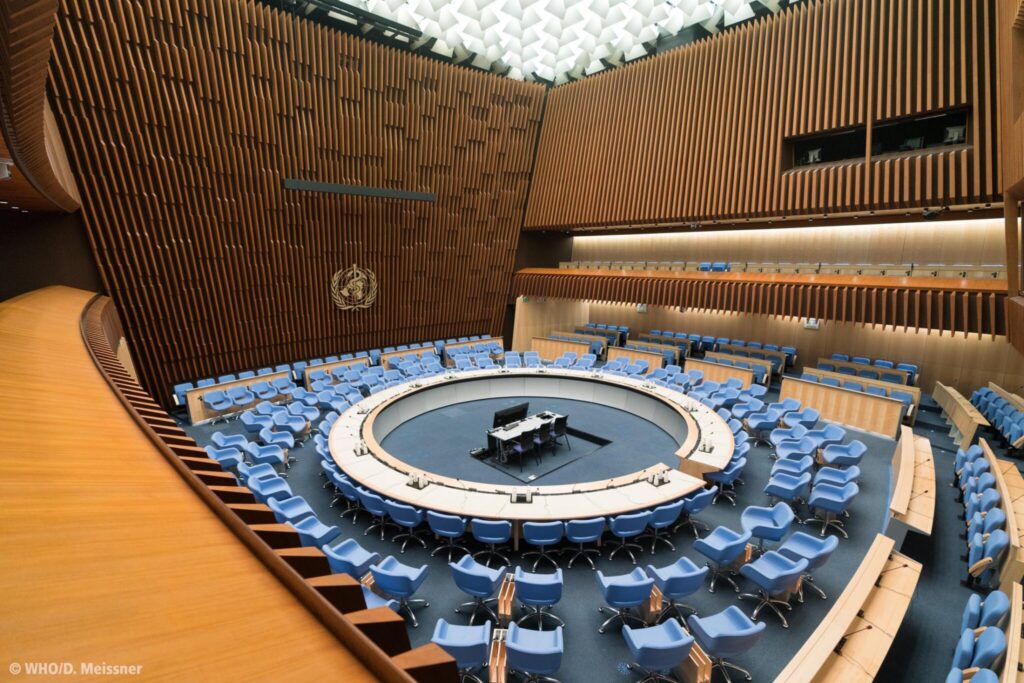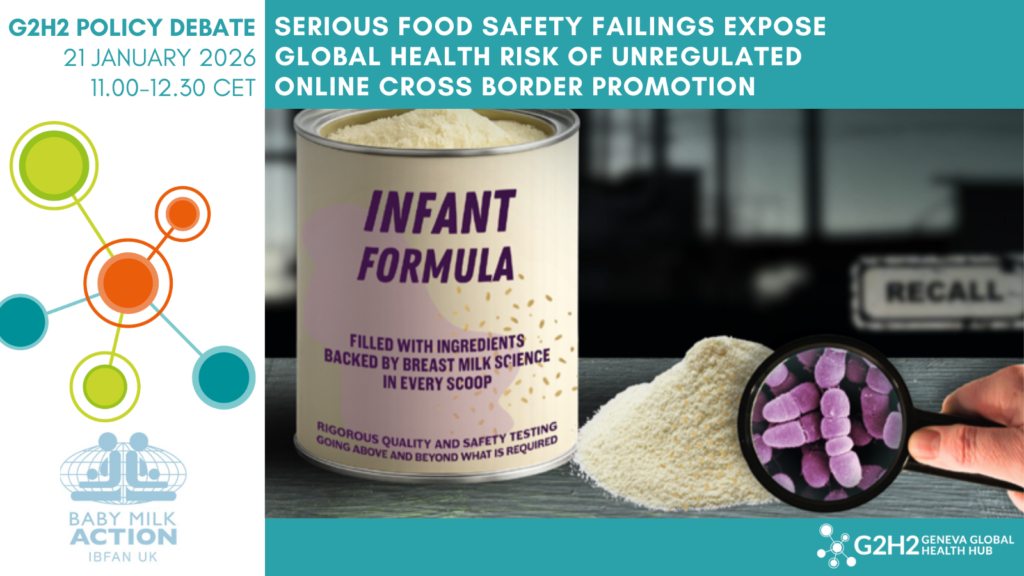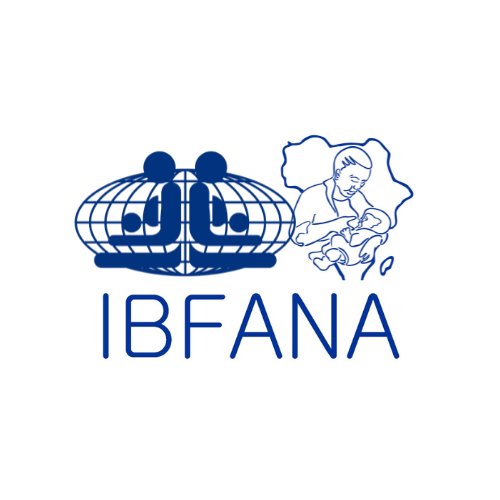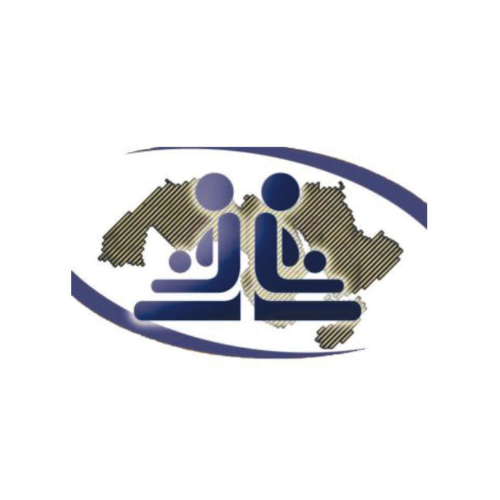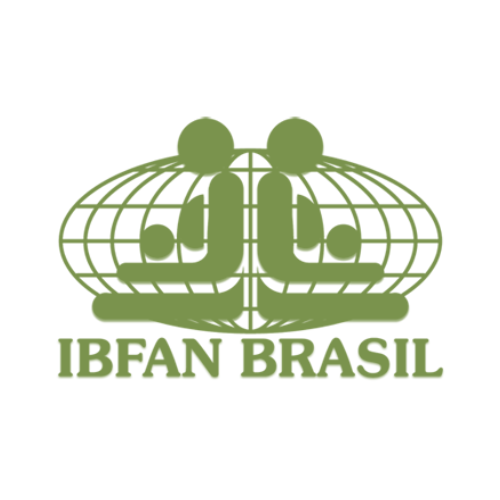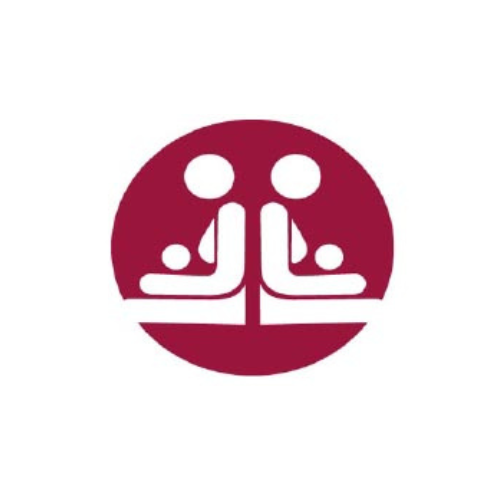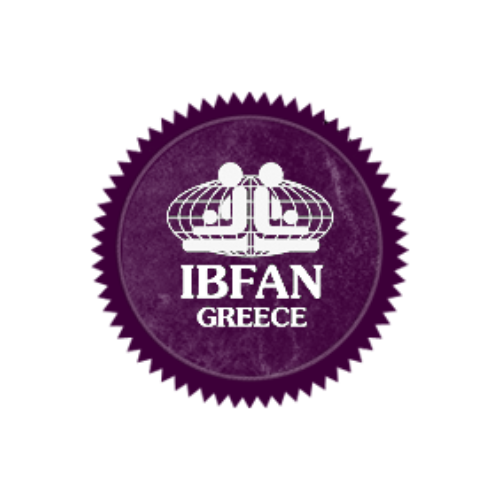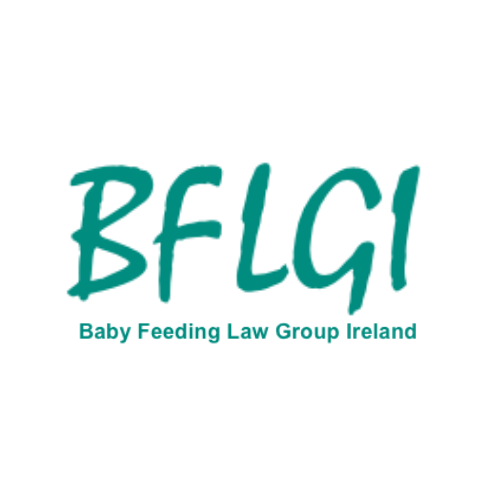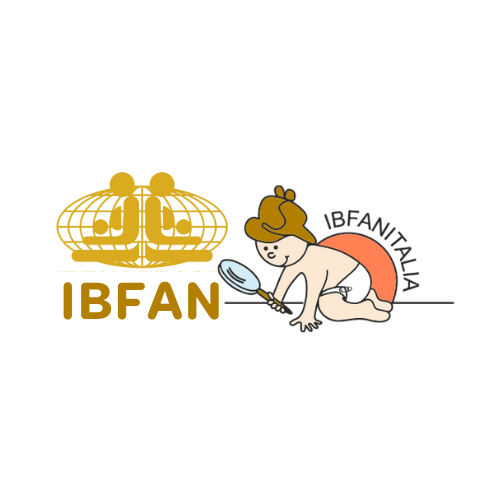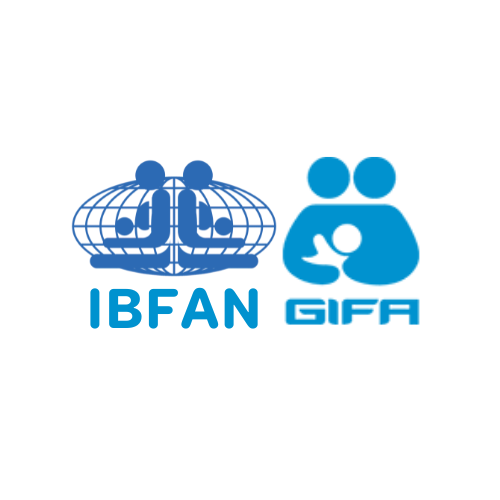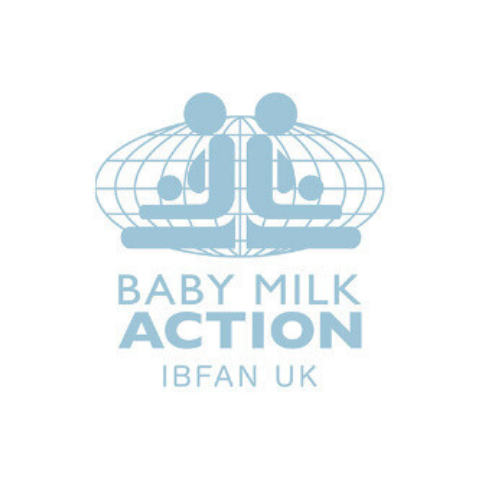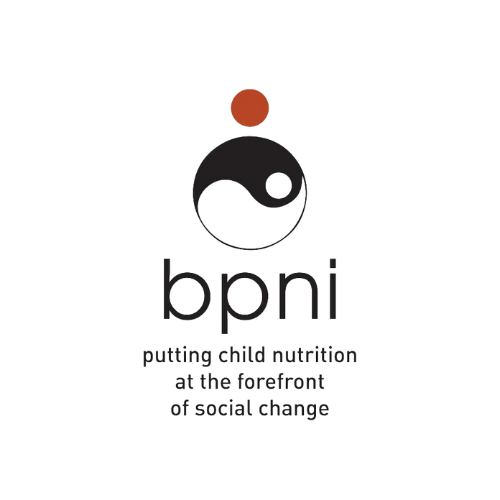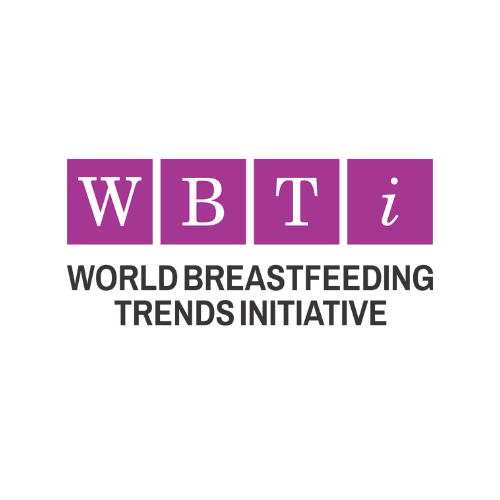With parents’ trust in commercial food systems eroded, the global network IBFAN will urge governments at WHO’s Executive Board meeting in Geneva to take the lead and ensure that families are better protected
Read More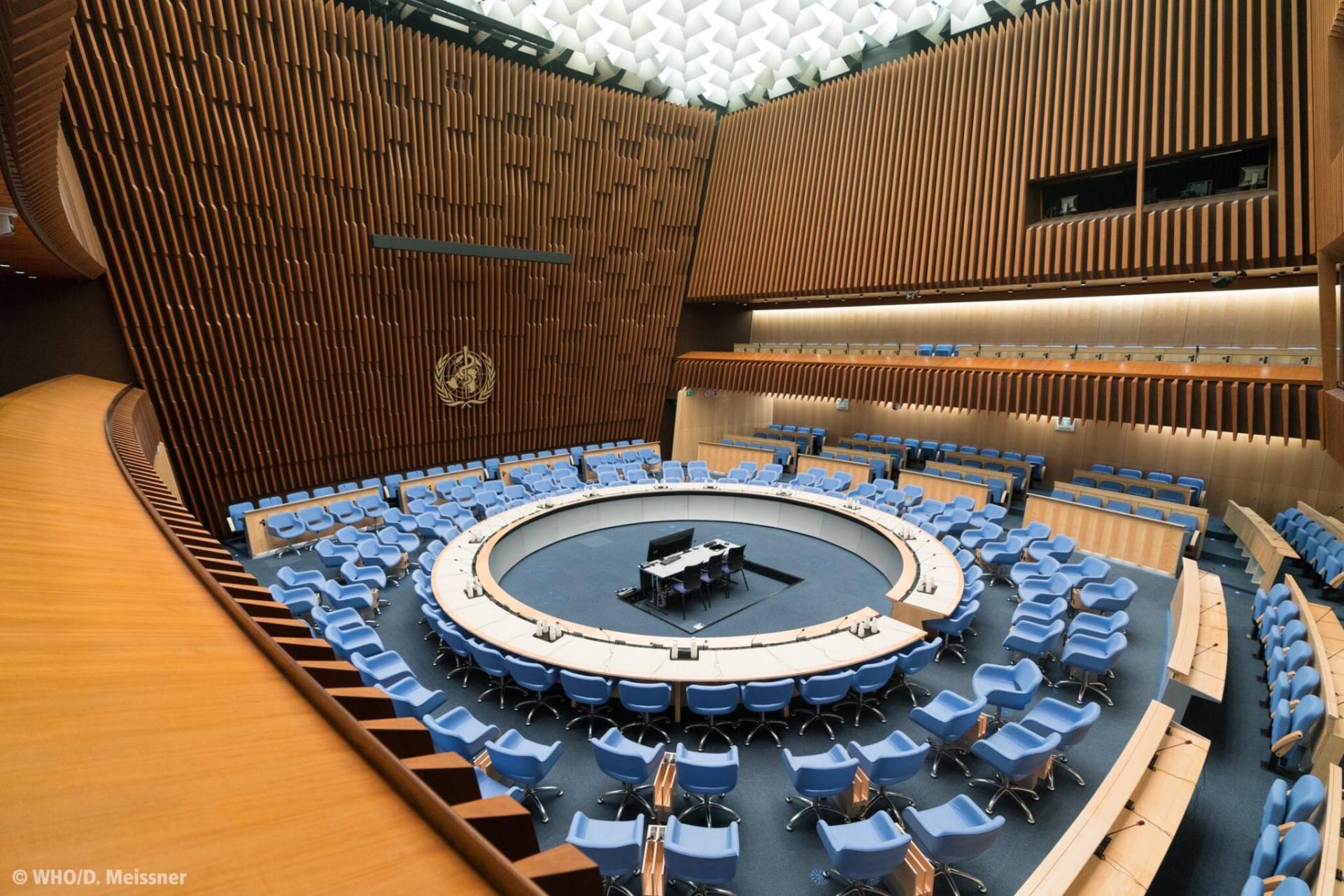
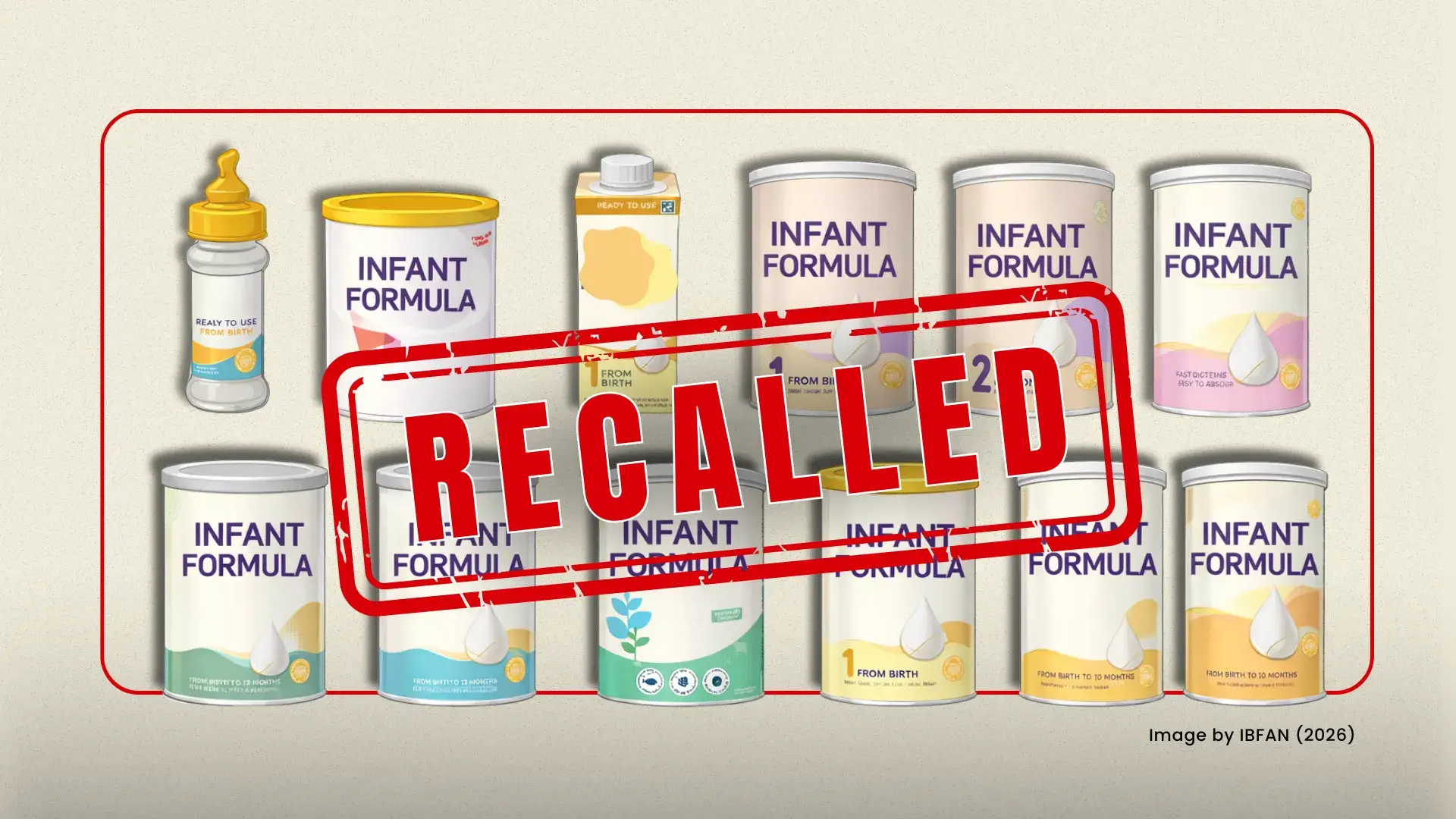
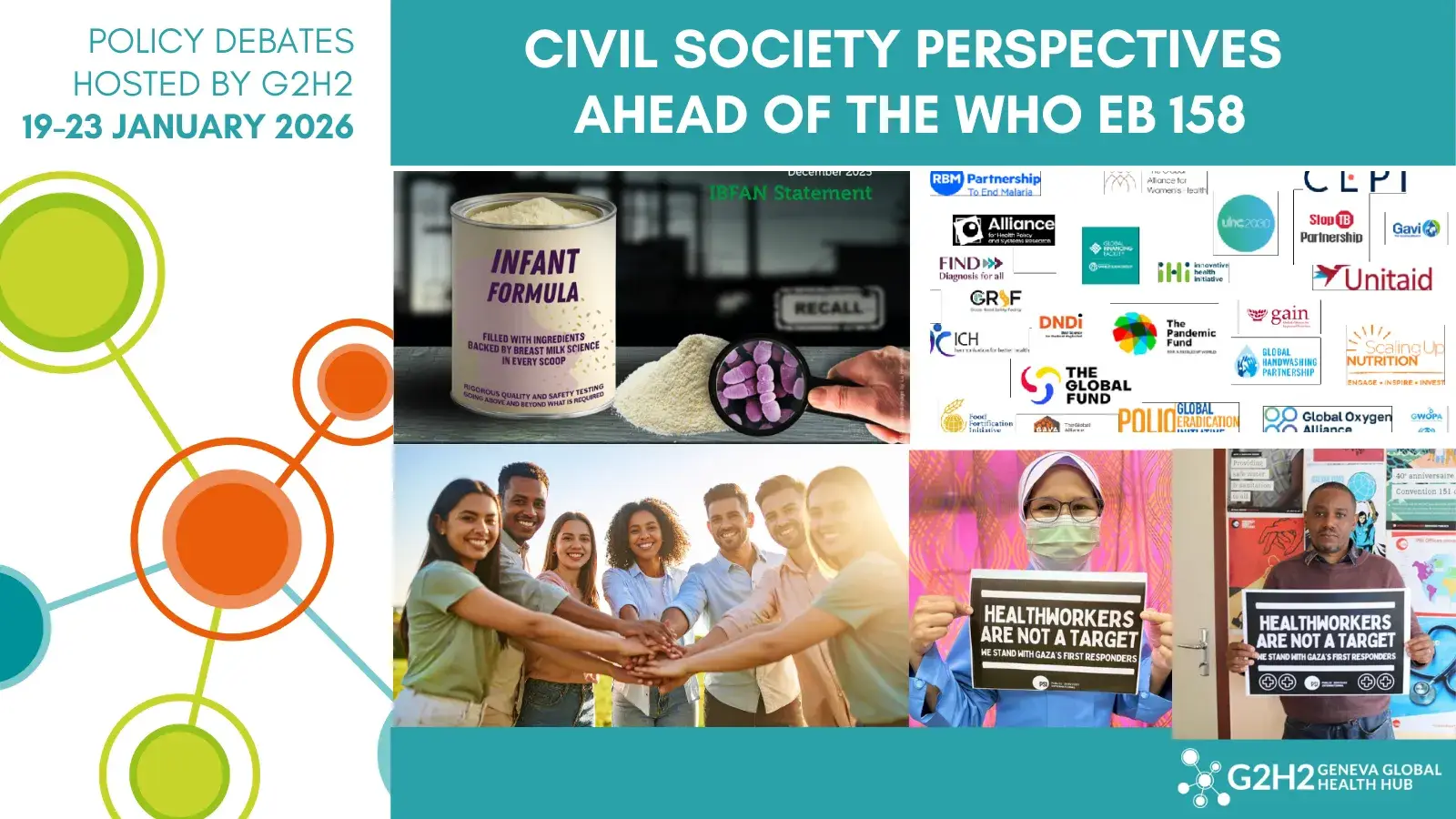



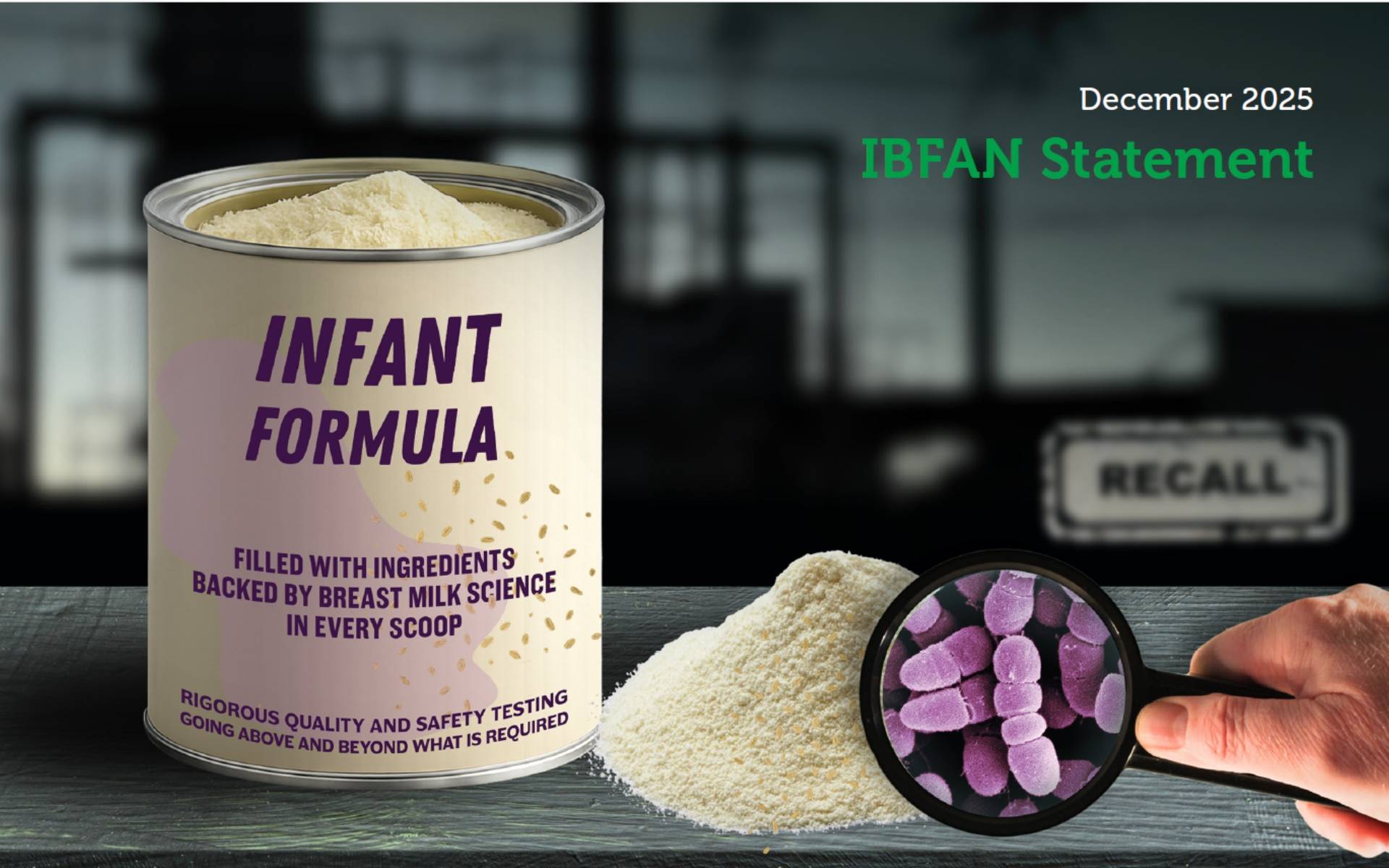
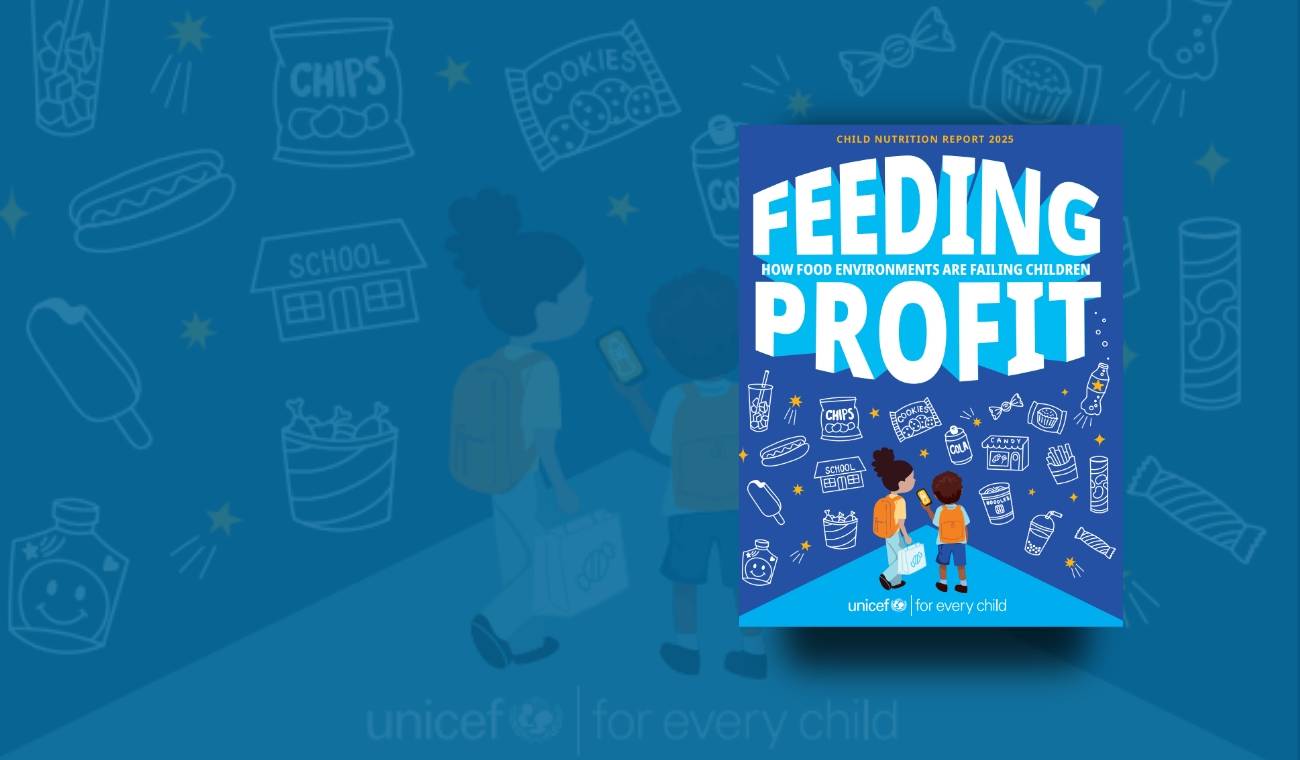
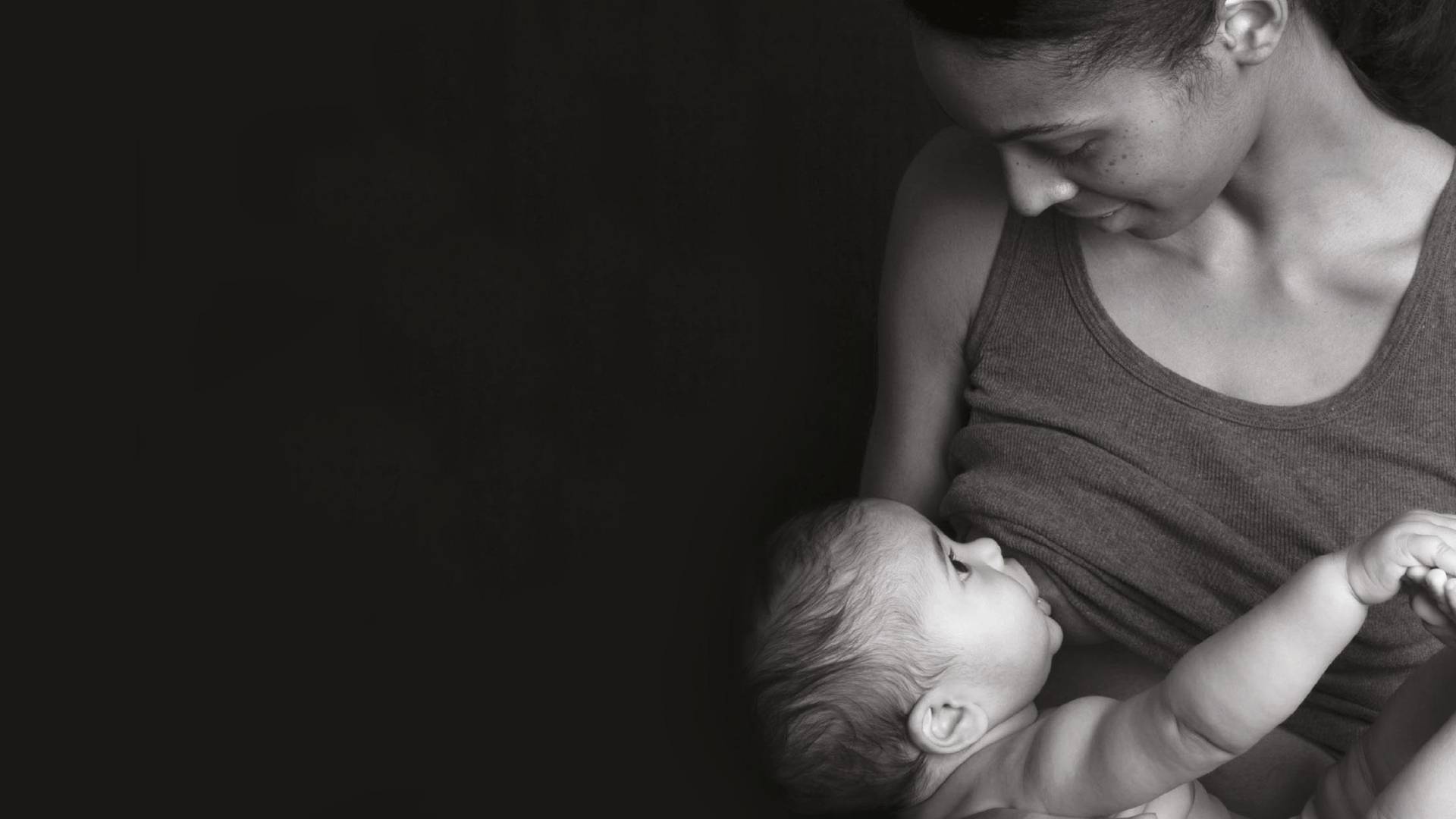
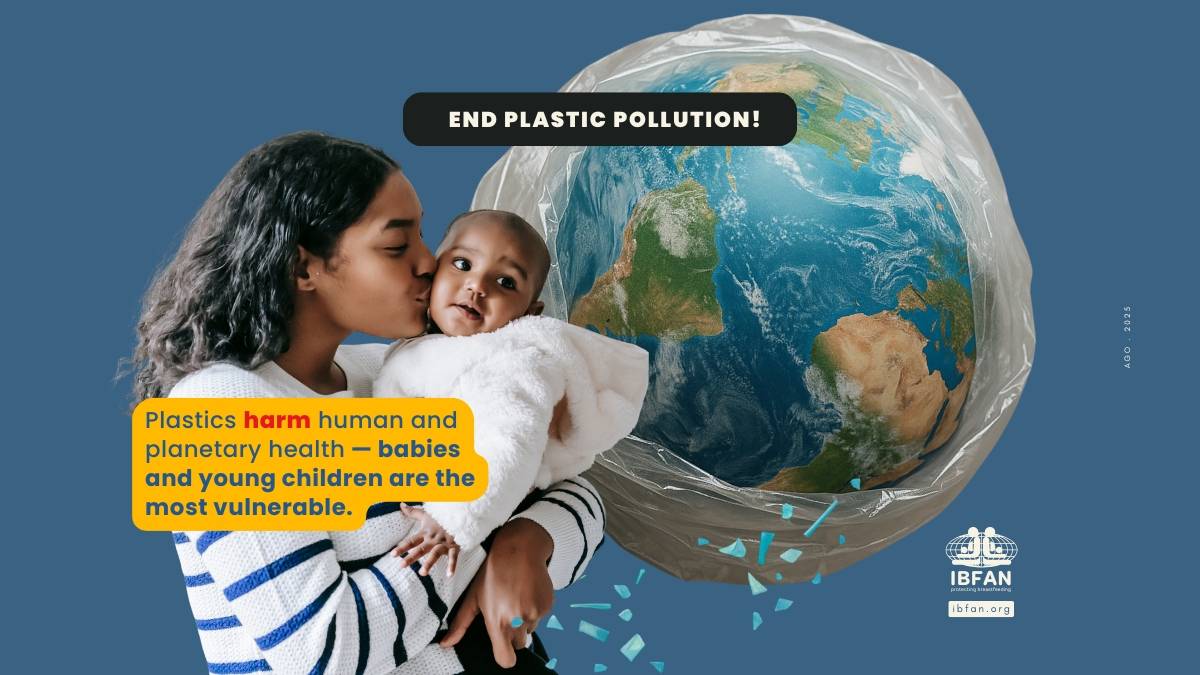
IBFAN warns at WHO’s 158th Executive Board: Urgent Resolution on the International Code and infant formula risks.
Nestlé’s credibility questioned as formulas recalled in 60+ countries over contamination risk
Soon after the ByHeart recall of its Powdered Infant Formulas (PIF) in the USA because of risk of Clostridium botulinum contamination, 60+ countries have recalled specific batches of Nestlé’s infant, follow-on, pre-term and specialised formulas, because of possible contamination by cereulide.
Climate Crisis intensifies water scarcity – Nestlé’s water scandals
Severe and increasing droughts caused by the climate crisis exacerbate water shortages and environmental pollution. As COP 30 opens in Brazil, IBFAN’s Statement ‘Nestlé Water Scandals’ addresses the exploitation of scarce water resources for profit.
Sugar scandal: in Africa, Nestlé is still putting profit ahead of babies’ health
Nestlé’s double standards exposed once more in Africa

Protecting independent science at Codex
IBFAN attended the 48th Codex Alimentarius Commission (CAC) in Rome, once more raising the need for greater protection of children and due diligence in the scientific process. For the first time Ultra Processed Foods (UPF) were on the Codex agenda, reflecting the growing concern of the harm to human and planetary caused by these products.
ByHeart & Botulism:
serious food safety failings expose online marketing risks
IBFAN is gravely concerned by the recent outbreak of potentially deadly infant botulism that seems to be linked to Clostridium botulinum contamination of powdered infant formula (PIF) manufactured by the new US-Based company ByHeart.
Feeding Profit – How food environments are failing children
In 2025, the global prevalence of obesity among school-age children and adolescents exceeded underweight for the first time. This dramatic shift in the face of malnutrition jeopardizes the health and future potential of children, communities and nations.
Plastics harm human and planetary health
Babies and young children are the most vulnerable.
The International Baby Food Action Network (IBFAN) is an international coalition aiming to improve maternal and infant and young child health through the protection, support and promotion of breastfeeding and optimal complementary feeding. It was formed by a small group of organisations and activists, concerned about the high mortality of formula fed babies, who came together in 1979 at the end of a WHO/UNICEF joint meeting on infant and young child feeding. The meeting had recommended an international code to regulate the marketing of infant formula, bottles and teats and other products marketed as breastmilk substitutes.
OUR FOCUS AREAS
1
Infants and young children everywhere to have the right to the highest attainable standard of health.
2
Families, and in particular women and children, have the right to access adequate and nutritious food and sufficient and affordable water.
3
Women have the right to breastfeed and to make informed decisions about infant and young child feeding.
4
Women have the right to full support to breastfeed for two years or more and to exclusively breastfeed for the first six months.
5
All people have the right to access quality health care services and information free of commercial influence.
6
Health workers and consumers have the right to be protected from commercial influence that may distort their judgment and decisions.
7
People have the right to advocate for change that protects, promotes, and supports basic health, in international solidarity.
NEWS IBFAN
Formula companies in crisis – Nestlé, Danone, Lactalis and Hochdorf
Powdered formula is NOT sterile and requires strict manufacturing controls, transparent testing, rapid warning and support for families. The number of contamination outbreaks in recent years highlights systemic failures in formula production, regulatory surveillance, recall systems and crisis communication
Read MoreIBFAN warns at WHO’s 158th Executive Board: Urgent Resolution on the International Code and infant formula risks
Recalls expose serious failures in the production, regulation and marketing of powdered formula, highlighting the need to strengthen breastfeeding.
Read MoreIBFAN WEBINAR on Food Safety with Yasmine Motarjemi, Nestlé Whistleblower
As part of the G2H2 series of Policy Debates from 19-23rd January, IBFAN will host a webinar Wednesday
Read MoreMATERNITY PROTECTION
State of Maternity Protection in 97 countries
An increasing number of women are entering the job market and they need maternity protection to make a balance between their productive and reproductive roles to take care of themselves, their children and their families.
READ MOREIBFAN Position Paper on Maternity Protection at Work
This paper presents IBFAN’s position on maternity protection at work and the tools for advocacy needed to increase the implementation of measures that enable mothers to participate as equals in the workplace while exercising their reproductive rights to breastfeed.
READ MOREBreastfeeding after returning to work or study
Many women find ways to continue breastfeeding their baby. Employers and course providers have certain obligations towards breastfeeding women to support your return to work or study.
READ MORE100 years of maternity protection
100 years ago, the ILO adopted the first-ever international standard on maternity protection. Since that Convention, the definition of maternity protection has expanded and its importance has become more widely appreciated – including as an essential element in achieving the Sustainable Development Goals of good health, gender equality, decent work and economic growth. But, despite this progress, many mothers and mothers-to-be still face serious challenges in the workplace.
VIDEO ‘100 years of maternity protection’, from the channel International Labour Organization, published on YouTube on 8/11/2019.
The IBFAN network is a global coalition formed by nearly 200 citizen groups in over 100 countries
